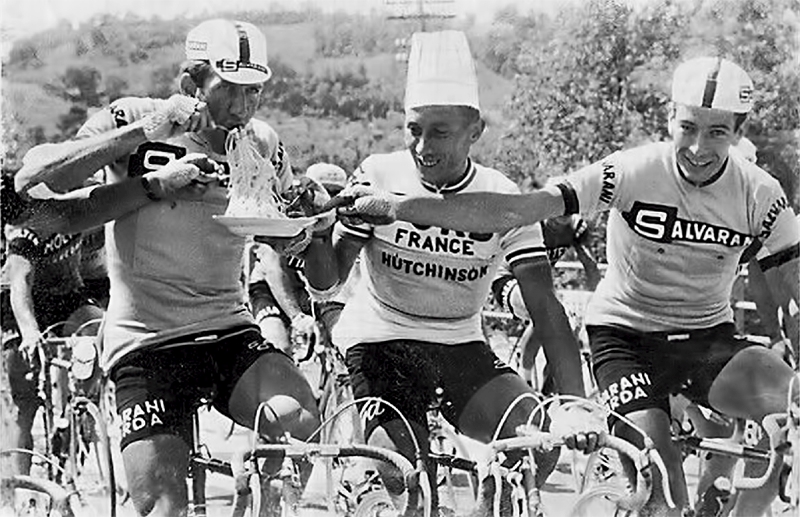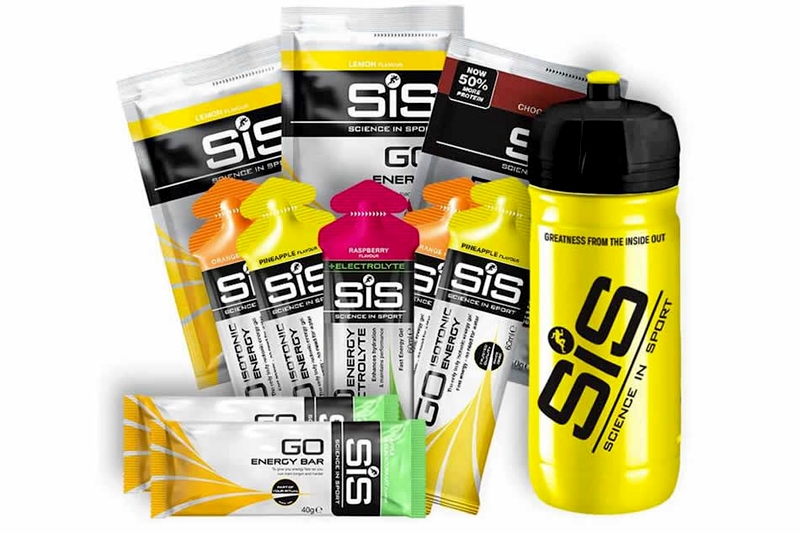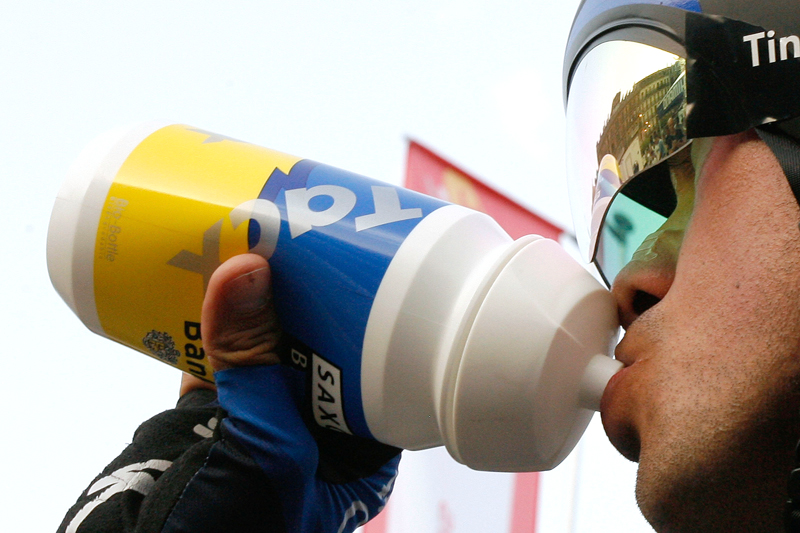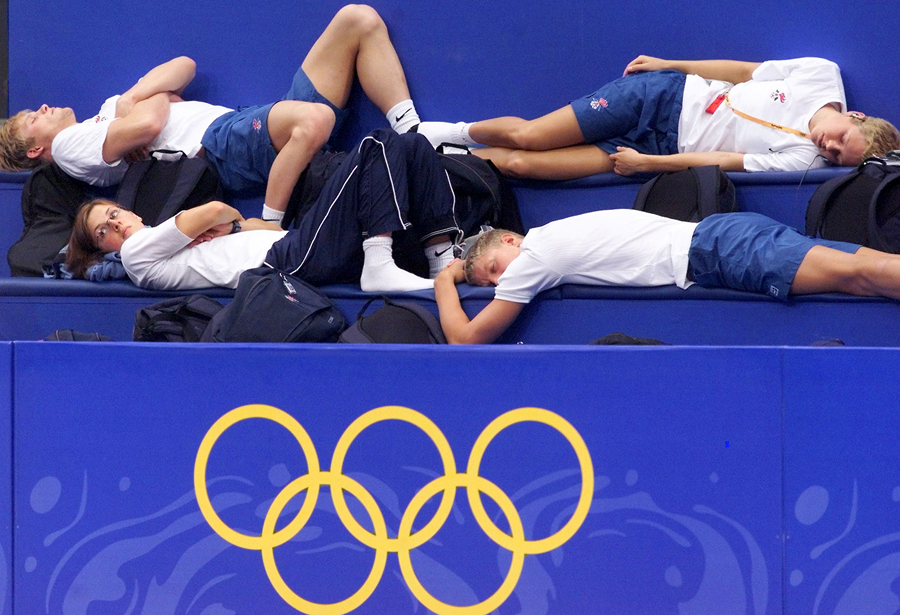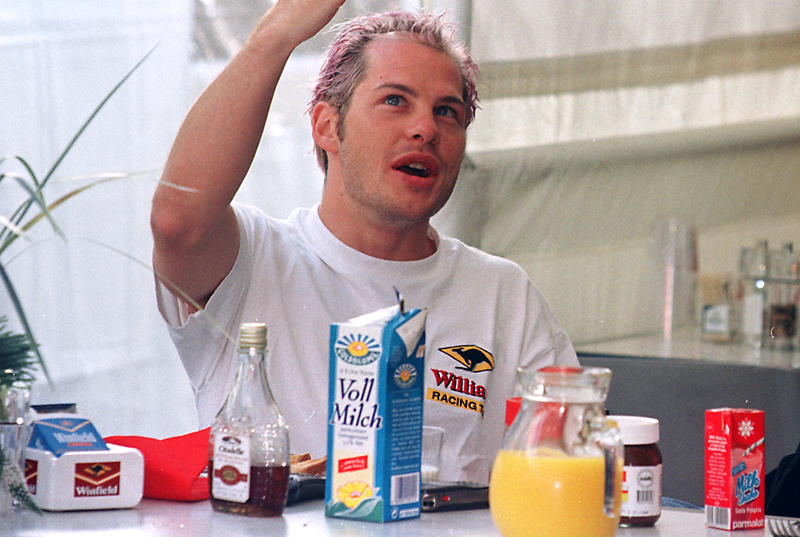You are viewing 1 of your 1 free articles. For unlimited access take a risk-free trial
Carbohydrate on the move: does mouth rinsing really work?
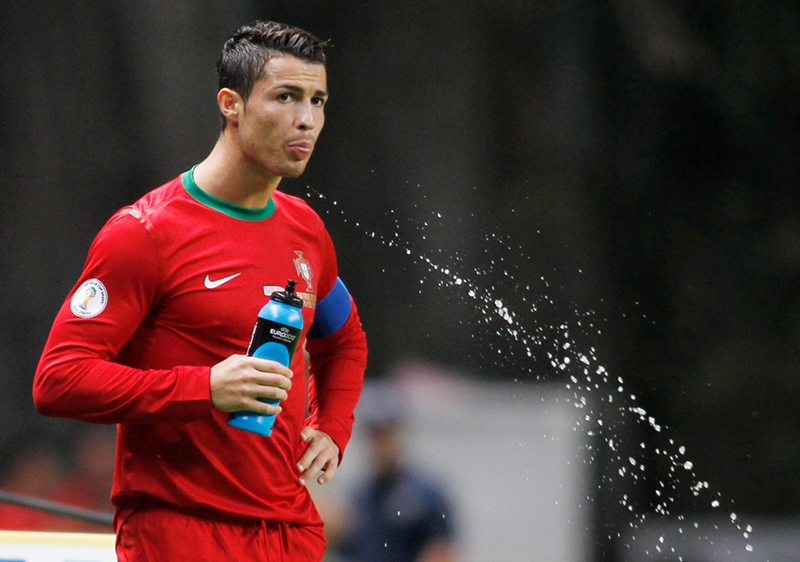
Numerous studies over the past 30 odd years have shown that taking carbohydrate drinks to replenish carbohydrate on the move (or at the very least, slow down the rate at which your body’s stores of muscle glycogen are depleted) prolongs time to exhaustion and improves endurance performance. These findings have helped sports scientists to develop and refine a number of recommendations for carbohydrate intake during racing and competition, when maximum performance on the day is the number one priority (see figure 1 below).
Figure 1: Recommended carbohydrate intake during exercise in order to optimise performance*

NB - Some of these time periods overlap because individual tolerance differences need to be taken into account. *”Spit or swallow?” Professor Asker Jeunkendrup, Sports Performance Bulletin 285, 1-4, 2010
Carbohydrate mystery
Despite all this research, there’s still some controversy about the value of carbohydrate feeding during and shorter-duration events (less than one hour). In theory, carbohydrate shouldn’t improve performance because low blood sugar doesn’t develop when durations are short. Also, it takes time before any ingested carbohydrate is absorbed, transported to and used by the muscles. In other words, only a small percentage of any carbohydrate ingested (too small to have an effect) during short-duration exercise can actually be used as fuel.However, about a decade ago, research demonstrated that cyclists can perform a 40km time-trial on average one minute faster with carbohydrate than without(1), even though this shouldn’t happen. Even more bizarrely, scientists have also found that when the same amount of carbohydrate is infused via a drip (rather than swallowed as a drink), there is absolutely no effect on performance(2). So if swallowed carbohydrate during exercise isn’t exerting its effects as an additional fuel, how can we explain its performance benefits during a 40km time trial?
Brain and mouth connection
Scientists are now convinced that the above effect occurs as a result of a ‘brain-mouth’ connection. We know for example that taste influences mood and we also know that if you’ve ‘hit the wall’ because you’ve run out of muscle glycogen and your blood sugar is low, merely biting into a sweet snack can almost instantly reduce the feelings of weakness and dizziness. In short, you feel better long before the carbohydrate has found its way into the bloodstream and the brain!This theory has support from studies using a powerful brain scanning technique called fMRI; studies show that simply putting carbohydrate in the mouth activate carbohydrate sensors in the mouth to signal to the brain that food is on its way. This can reduce the perception of effort, making the exercise task easier. In effect, these receptors are telling the brain: “you have nothing to worry about, because energy is on its way!” Moreover, further studies on 40km cycling performance demonstrated that simply rinsing the mouth for seconds with a carbohydrate drink then spitting it out (ie not swallowing any of the drink – so-called ‘carbohydrate rinsing’) was able to improve performance significantly – as much as when the carbohydrate is swallowed(3).
Carbohydrate rinsing: what’s the deal?
In theory, the practice of carbohydrate rinsing seems to offer considerable benefits. Rather than lugging around lots of drink, athletes might only need very small amounts to swill around the mouth at periodic intervals – remember that it’s the presence of carbohydrate in the mouth that seems to matter (by activating brain receptors) rather than the effects it exerts once in the body. The problem however is that (as is often the case in sports nutrition) however, things are rarely as straightforward as they seem on initial inspection.In the last five years, a large number of studies on carbohydrate mouth rinsing and performance have been carried out and it’s fair to say that the results have been very mixed, with some suggesting performance benefits while others suggesting no benefits. One comprehensive review study (a summary of a number of previous studies – see table 1(4)) concluded that while there did seem to be some potential benefits from mouth rinsing, the magnitude of any benefits was small enough to introduce quite a lot of uncertainty. So while the performance benefits (last column) seem at first glance to be persuasive, the large variability in methodological factors – for example, the duration and number of mouth, the concentration of the carbohydrate rinses, the type of exercise being performed, whether the athletes were fasted beforehand etc. – made it actually quite difficult to say unequivocally that rinsing consistently offers significant benefits. Overall however, the researchers did conclude that carbohydrate mouth rinsing seems to improve performance by a small amount during moderate to high-intensity exercise of at least one hour’s duration.

Recent thinking on rinsing
More recent studies into the merits or otherwise of carbohydrate rinsing have also been a bit mixed. Two studies by Brazilian scientists found that the performance benefits of mouth rinsing were more likely to occur during very long-duration sub-maximal exercise rather than during maximal (race or time trial) conditions(5) , and also when muscle and liver stores of carbohydrate are already very low - ie when athletes are near exhaustion and the central nervous system is having to ‘work overtime’ to maintain the same rate of muscle contraction(6).Meanwhile, a study looking at recreational cyclists performing a 20km cycling time trial in a fasted state found that mouth rinsing with carbohydrate drinks - with a number of different concentrations – produced zero performance benefits(7). These results are consistent with the notion that carbohydrate rinsing might be most effective during long-duration events and when muscles are already glycogen depleted; a 20km time trial in the fed state is nothing like the challenge of a 100km ride in a glycogen-depleted state!
Right up to date
In the last few weeks, there’s been a surge in new studies on carbohydrate rinsing and endurance performance. What do these studies say about its efficacy, and whether athletes should add mouth rinsing to their performance nutrition strategy? Just last month, a study on trained cyclists looked to see if mouth rinsing during a 30-minute time trial following a steady-state moderate intensity ride boosted performance(8). Importantly, all the cyclists were allowed to consume a pre-trial snack two hours beforehand, which is much more representative of real-world conditions (few athletes would start an event with pangs of hunger in their stomach!).The cyclists performed two identical trials. In both trials, they consumed a standardised pre-trial snack. Two hours later, they performed 120 minutes of steady-state cycling (60% VO2max) during which they drank (ie swallowed!) 30 grams per hour of carbohydrate. Following this, they completed a 30-minute time trial. However, the nutrition strategy during this section varied: in one trial they consumed a carbohydrate-free (placebo) mouthwash while in the other, the mouthwash did contain carbohydrate (see figure 2).
Figure 2: Summary of protocol for 30-minute time trial and mouthwash experiment(8)
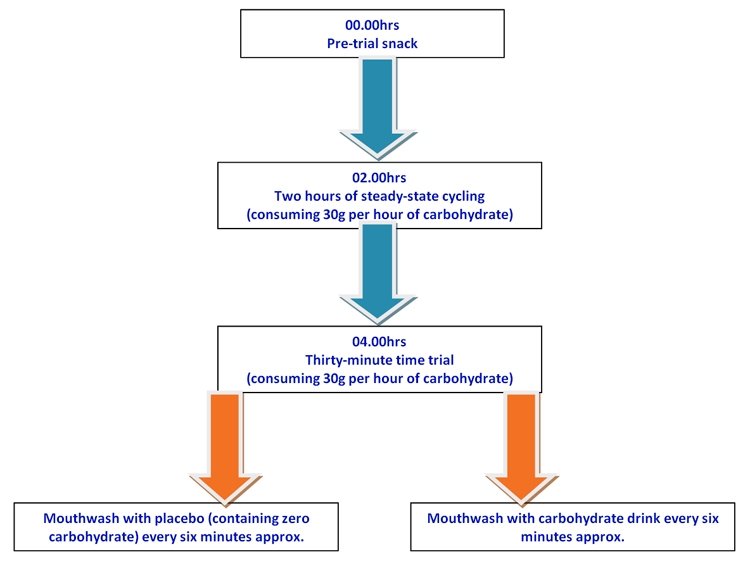
The results showed that when the cyclists used the real carbohydrate mouthwash during the time trial, they completed the workload 35 seconds faster than when they mouthwashed with the placebo. However, this improvement was too small to be considered statistically significant (ie there was a good chance this was just a random variation). To be sure, the study would need to be completed with a larger group of cyclists. What we can say however is that even if there is a benefit of using mouthwash in these ‘real-world’ conditions, it is likely to be very small indeed.
Another study published last month compared the effects of a carbohydrate mouthwash with and without added caffeine to a placebo mouthwash in runners(9). Eight recreationally trained males completed three separate trials consisting of 45 minutes of steady-state running immediately followed by a high-intensity interval training protocol - running intervals on the treadmill at 90% of maximum running speed until exhaustion set in (hard!). Every second interval, the runners received a carbohydrate mouthwash, a carbohydrate mouthwash plus caffeine or a carbohydrate-free (placebo) mouthwash. Like the cyclists above, the runners were in a fed state – ie started the trial in similar nourished state as a runner would be in the real world when stepping up to the start line. The results showed that while the carbohydrate wash plus caffeine resulted in significantly better performances, the carbohydrate mouthwash on its own was no better than the placebo. In other words, any benefits were down to the caffeine – NOT the carbohydrate mouthwash.
Yet another study published last month compared 30km time trial performance in cyclists using a carbohydrate mouthwash, a placebo (carbohydrate-free) mouthwash, or just drinking plain water(10). Like the two studies above, the cyclists in this study started the time trial in a fed state – ie replicating the most likely nutritional status an endurance athlete would experience when starting a race. Once again, when it came to actual performance, the carbohydrate rinse was no better than using the carbohydrate-free placebo rinse, or just drinking plain water – nor were there any differences in the cyclists’ blood glucose, insulin, cortisol or creatine kinase responses (indicating that the mouthwash hadn’t altered any aspects of metabolism).
Finally, a study published just two weeks ago has compared the effects of a carbohydrate mouthwash to drinking water on 30km time trial performance in cyclists(11). Eleven recreationally trained male cyclists (again, in the fed state) completed a 30km time trial on a cycle ergometer under three experimental interventions:
- Using carbohydrate mouthwash.
- Drinking water to replace any exercise-induced weight loss (ie sweating and water lost through the lungs).
- Drinking water freely whenever the cyclists felt like it (ad libitum).
Summing up the latest thinking
The early evidence seemed to suggest that it might not be necessary to take on board large amounts of carbohydrate during exercise lasting approximately 30 minutes to one hour. Simply rinsing your mouth with carbohydrate might be sufficient. But later research suggested that rinsing isn’t the ‘cure-all’ performance bullet scientists first believed. In particular, it seems to be less effective during shorter bouts of exercise, more intense exercise, or when you’re not already carbohydrate depleted. And even when it does help, the performance benefits appear to be marginal at best.The very latest research focusing on athletes in the ‘fed’ state – the state most of you will be in as you step up to the start line – provides very little further evidence to support the use of carbohydrate mouth rinsing for most people most of the time. In particular, for events of less than 60-80 minutes, there seems to be absolutely no benefits of carbohydrate rinsing. Indeed, in hot conditions, there could be drawbacks in terms of a poorer hydration status as a result of not drinking fluid. In the light of the latest evidence therefore, our ‘best-practice’ recommendations are shown in the panel below.
When to rinse
- For most people in most situations, carbohydrate rinsing doesn’t appear to offer any real performance advantages over consuming carbohydrate drinks (or gels).
- When conditions are warm/hot and when the event duration exceeds an hour, mouth rinsing instead of drinking may compromise your hydration status, and is not therefore recommended.
- Mouth rinsing may be of value during the later stages of longer events when you’re already carbohydrate depleted. Examples would be if you have a sensitive tummy and/or you’re suffering from gastric distress – or if your carbohydrate drink is running low and you need to eek it out. However, this should not be at the expense of consuming water, especially if conditions are hot.
- Those with a history of dental problems such as sensitive teeth and/or enamel erosion should be aware that a keeping a carbohydrate solution in your mouth and swirling it around your teeth can be detrimental to dental health. If this is the case, you should use either use a low-acidity carbohydrate rinsing formulation or refrain from rinsing altogether.
*If you want to try carbohydrate rinsing, your mouth should be rinsed with a carbohydrate solution every 10 minutes or so.
*Carbohydrate drinks used for rinsing should be at 6-10% concentration (6-10 grams per 100mls of plain water). There’s no benefit from using more concentrated drinks.
*Rinse for at least 10 seconds as longer rinses seem to be more effective.
*A lollypop or a sweet can also be used but care should be taken to ensure you don’t swallow or choke on it!
References
1. Int J Sports Med 18(2): 125-9, 1997
2. Med Sci Sports Exerc 36(9): 1543-50, 2004
3. Med Sci Sports Exerc 36(12): 2107-11, 2004
4. Nutrients. 2013 Dec 19;6(1):1-10
5. Nutrients. 2016 Mar 9;8(3):49
6. Med Sci Sports Exerc. 2016 Sep;48(9):1810-20
7. Nutrients. 2016 May 9;8(5). pii: E269
8. Med Sci Sports Exerc. 2018 May;50(5):1031-1038
9. Appl Physiol Nutr Metab. 2018 May;43(5):517-521
10. J Int Soc Sports Nutr. 2018 May 2;15:23
11. J Sports Sci Med. 2018 May 14;17(2):181-187
Newsletter Sign Up
Testimonials
Dr. Alexandra Fandetti-Robin, Back & Body Chiropractic
Elspeth Cowell MSCh DpodM SRCh HCPC reg
William Hunter, Nuffield Health
Newsletter Sign Up
Coaches Testimonials
Dr. Alexandra Fandetti-Robin, Back & Body Chiropractic
Elspeth Cowell MSCh DpodM SRCh HCPC reg
William Hunter, Nuffield Health
Keep up with latest sports science research and apply it to maximize performance
Today you have the chance to join a group of athletes, and sports coaches/trainers who all have something special in common...
They use the latest research to improve performance for themselves and their clients - both athletes and sports teams - with help from global specialists in the fields of sports science, sports medicine and sports psychology.
They do this by reading Sports Performance Bulletin, an easy-to-digest but serious-minded journal dedicated to high performance sports. SPB offers a wealth of information and insight into the latest research, in an easily-accessible and understood format, along with a wealth of practical recommendations.
*includes 3 coaching manuals
Get Inspired
All the latest techniques and approaches
Sports Performance Bulletin helps dedicated endurance athletes improve their performance. Sense-checking the latest sports science research, and sourcing evidence and case studies to support findings, Sports Performance Bulletin turns proven insights into easily digestible practical advice. Supporting athletes, coaches and professionals who wish to ensure their guidance and programmes are kept right up to date and based on credible science.
